Pressure washers make cleaning a breeze, whether you’re tackling tough stains on your driveway or freshening up your patio. These machines pack a punch, blasting away dirt and grime with ease. You’ll save time and energy while getting those surfaces sparkling clean in no time.
Pressure Washers
Effortlessly blast away dirt and grime for a sparkling clean around your home and yard
Product List
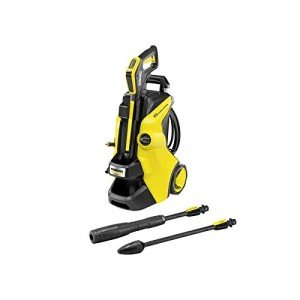
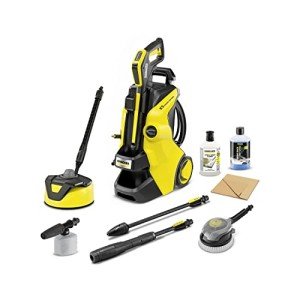
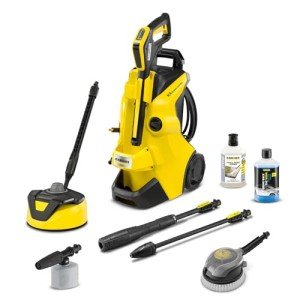
Kärcher K 4 Pressure Washer
Kärcher
Product Review Score
4.67 out of 5 stars
76 reviews£309.99 £249.99
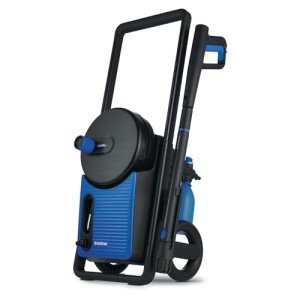
Nilfisk Eccellente 160 Pressure Washer
Nilfisk
Product Review Score
4.26 out of 5 stars
21 reviews£319.99 £279.00
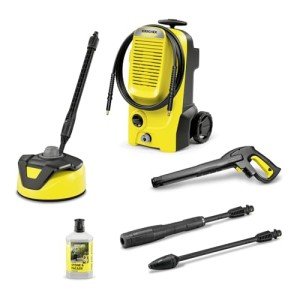
Kärcher K 5 Pressure Washer
Kärcher
Product Review Score
4.38 out of 5 stars
155 reviews£319.99 £279.99
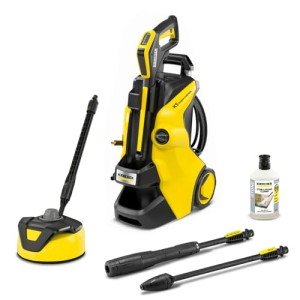
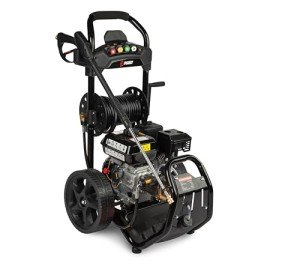
Bimson 2900 PSI Pressure Washer
Bimson Power
Product Review Score
4.26 out of 5 stars
190 reviews£299.99
When it comes to cleaning tough surfaces or maintaining the appearance of your driveway, patio, or home exterior, pressure washers are your best friend. These powerful machines can cut through grime, dirt, and even mildew with relative ease, making them invaluable for both residential and commercial applications. This blog post aims to provide an in-depth understanding of pressure washers, including types, benefits, and tips for choosing the right one.
What is a Pressure Washer?
A pressure washer is a mechanical device that uses high-pressure water spray to remove dirt, grime, mold, and even loose paint from surfaces. The level of pressure can be adjusted based on the type of cleaning task, making it suitable for a variety of surfaces, from concrete patios to wooden decks.
How Do Pressure Washers Work?
Pressure washers work by using a motor (electric or gas) to pump water at high pressure through a nozzle. The increased water pressure allows for a more effective cleaning process than traditional methods. Different types of nozzles can be used to customize the spray pattern and pressure level.
Types of Pressure Washers
Pressure washers are categorized mainly into three types based on the power source and functionality:
| Type | Power Source | PSI Range | Suitable for |
|---|---|---|---|
| Electric | Electric | 1,300 - 1,800 PSI | Residential cleaning |
| Gas | Gasoline | 2,000 - 4,000 PSI | Heavy-duty cleaning |
| Diesel | Diesel | 3,000 - 4,500 PSI | Industrial applications |
Electric Pressure Washers
Ideal for small to medium tasks, electric pressure washers are quieter and more environmentally friendly than their gas counterparts. They are perfect for:
- Washing cars
- Cleaning outdoor furniture
- Maintaining decks and patios
Gas Pressure Washers
Gas-powered units deliver higher pressure and are ideal for tougher jobs. They can be used for:
- Stripping paint
- Cleaning driveways
- Removing grime from building exteriors
Diesel Pressure Washers
These heavy-duty machines are used primarily in industrial applications where maximum power is necessary. They are beneficial for:
- Large-scale projects
- Professional cleaning services
- Construction sites
Benefits of Using a Pressure Washer
Investing in a pressure washer comes with several benefits, including:
- Efficiency: Pressure washers clean surfaces much faster compared to manual scrubbing.
- Versatility: They can be used on a variety of surfaces—wood, concrete, brick, and more.
- Saves Water: Using high pressure allows for more effective cleaning with less water.
- Environmentally Friendly: Many pressure washers use minimal detergents, making them eco-friendly.
- Increases Property Value: Regular cleaning can enhance curb appeal and maintain your property's value.
How to Choose the Right Pressure Washer
Selection of a pressure washer should be based on a variety of factors. Here’s a checklist to consider:
Checklist for Choosing a Pressure Washer
- Task Requirements: Identify the types of jobs you need the washer for.
- Power Source: Decide between electric, gas, or diesel.
- Portability: Consider where you will be using it.
- Budget: Determine how much you are willing to spend.
- Attachments and Accessories: Look for models that offer versatile nozzles and attachments.
Key Features to Look For
- PSI (Pounds per Square Inch): Indicates the pressure; higher PSI means more force.
- GPM (Gallons per Minute): Measures the water flow rate; higher GPM means more cleaning power.
- Warranty: Longer warranties indicate better durability.
- Cleaning System: Check if the model supports different cleaning systems (like soap dispensing).
Frequently Asked Questions (FAQ)
1. Can I use my pressure washer to clean my car?
Yes, pressure washers are great for cleaning cars, but it's essential to use a low-pressure nozzle to avoid damaging the paint.
2. Is it safe to use a pressure washer on wooden decks?
Yes, but use a wide-angle nozzle and lower pressure to avoid gouging the wood.
3. How often should I pressure wash my home?
Generally, it is recommended to pressure wash your home annually, though it may vary based on local weather and exposure to grime.
4. Is it worth renting vs. buying a pressure washer?
If you plan to use a pressure washer frequently, buying may be more cost-effective. For occasional use, renting can be a practical option.
5. What detergent should I use?
Always opt for pressure washer-specific detergents, as they are designed to work with the machine's pressure and chemicals.
Pressure washers are powerful, versatile tools ideal for a variety of cleaning tasks. Whether you’re maintaining the cleanliness of your home or tackling tough jobs at work, understanding the types and features of pressure washers will help you make an informed decision. By selecting the right model for your specific needs and using it correctly, you can maximize your investment and enjoy the benefits of a clean, well-maintained environment. Investing in a pressure washer is more than just buying a tool; it's about enhancing your property’s appearance and taking control of your cleaning tasks efficiently.